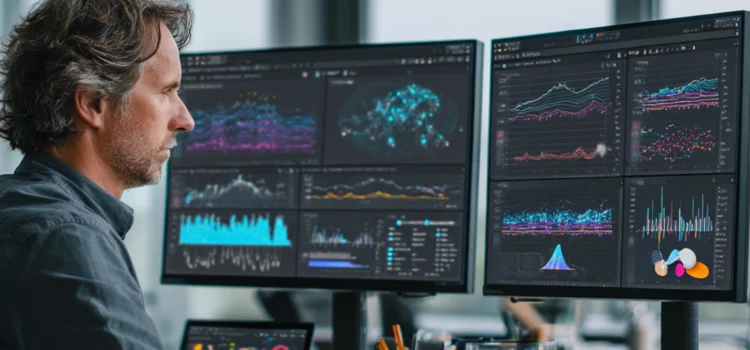The New Frontier of Sports Betting: Real-Time Data Integration and Dynamic Odds
As the global sports betting industry heads deeper into the second half of 2025, a paradigm shift is taking place across platforms. The increasing sophistication of real-time data integration, coupled with the rise of dynamic odds engines, is fundamentally transforming how bookmakers operate and how punters devise their strategies. This week, several top-tier sportsbooks and data providers have unveiled partnerships and technological upgrades that mark the beginning of a new era for sports betting.
Real-Time Data: The Backbone of Modern Sportsbooks
The rapid acceleration of real-time data feeds has become the backbone of every major sportsbook in 2025. Leading data providers are now capable of delivering pinpoint-accurate in-game statistics, player tracking information, and predictive metrics at sub-second speeds for hundreds of leagues worldwide. According to the latest report by Global Betting Analytics, 94% of Tier 1 bookmakers in Europe and North America are now directly integrated with multiple live data sources.
This week, BetEngage and StatsEdge announced the rollout of enhanced live API feeds for football, tennis, and US sports. These feeds not only track quantitative elements—such as possession and shot location—but also integrate biometric and physiological data points. The result: a granular, up-to-the-second context for both algorithms and human traders.
Bookmakers using these supercharged data streams have reported a 23% reduction in odds latency, a figure that translates directly to higher turnover, especially in volatile in-play betting markets.
Dynamic Odds Engines Redefine the Player Experience
Alongside real-time data, the revolution in dynamic odds compilers is reshaping the market. Unlike traditional static odds models based on pre-match analysis, dynamic engines now respond to in-game events, betting volumes, and even player sentiment on social networks with unprecedented agility.
This week, PinnacleLabs debuted its AI-powered odds engine at two major sportsbooks, showing in public beta a 7% improvement in margin management over legacy systems. Notably, early user engagement statistics reveal that bettors participating in live, dynamically-priced markets spend 28% longer per session and increase bet frequency by 18% compared to sessions with conventional odds.
According to industry specialist Liam Brooks, “These new odds models are democratizing value for bettors who stay informed. Sharper, more responsive pricing is a double-edged sword: it creates more frequent ‘value’ opportunities, but also closes windows much faster.”
Player Tools: Surfing the Wave of Innovation
Strategic punters are increasingly relying on advanced analytical tools to harness these developments. Live odds comparison dashboards, customizable alert systems, and real-time expected value (EV) calculators have become must-haves for serious bettors.
Platforms like BetTrackPro and QuickSignal have this week reported record increases in user signups—up 38% month-on-month, owing largely to enhancements in data precision and personalized notification settings. Users benefit from tools that filter, aggregate, and interpret real-time movements, alerting them as soon as a favorable price emerges.
Interestingly, data from BetTrackPro shows that users engaging with their live odds tracker are 41% more likely to make a positive EV bet than those relying solely on manual search, a testament to how technology is narrowing the edge gap between operator and bettor.
Regulatory Implications and the Road Ahead
With increased speed and complexity comes the responsibility for robust regulation. This week, both the UK Gambling Commission and the Malta Gaming Authority issued updated technical standards for data transparency and odds fairness, emphasizing the need for verifiable audit trails and third-party oversight.
Operators are now required to publish odds movement logs and certify that dynamic pricing algorithms avoid exploitative practices during high-volatility events. These measures are designed to foster trust and integrity—a crucial factor as markets become more fluid and responsive.
Conclusion: Mastery Demands Adaptation
For both bettors and operators, mastering this new landscape will require not just technological investment but also strategic flexibility. The integration of real-time data and dynamic odds isn’t just a technical feature—it’s reshaping the fundamental nature of sports wagering.
Punters who embrace the latest tools and adapt their strategies accordingly are best positioned to thrive in this rapidly evolving terrain. The sportsbooks that lead in transparency, technology, and user empowerment will set the tone for the industry as it enters the next phase of innovation.



















